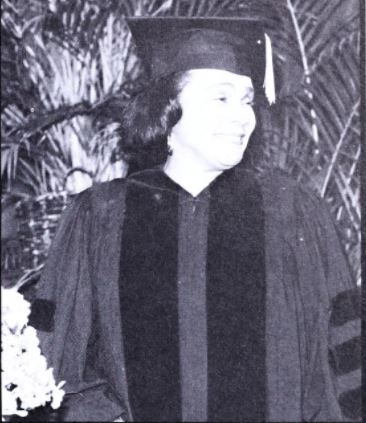When it comes to most aspects of Muhlenberg College, its history is long and varied. The same is especially true in regards to commencement speakers at graduation. It was recently announced that when the class of 2018 dons their caps and gowns, they will listen to a commencement address from Dr. Robert Loeffler. Dr. Loeffler is a Muhlenberg alum and has served with Doctors Without Borders and aided in the Haitian earthquake relief efforts. Though the content of his speech is yet unknown, it will likely follow a pattern of previous speakers.
The role of a commencement speaker at graduation is one of great importance. Not only do they give a speech to the soon to be graduates, but they also reflect the time in which they are speaking. Though their words are ones of encouragement, they also mirror the sentiments of the current time and bridge a gap between Muhlenberg and the outside world. An early instance of this is seen in the commencement speaker for the class of 1930, the Honorable Senator James John Davis. Davis was the Secretary of Labor under presidents Harding and Coolidge. For those of you who slept through history class, the Great Depression, which many believed was caused by the ill-informed policy of Coolidge, had just begun less than a year prior to Davis’ speech. Though no record of his content exists, it is clear that Seator Davis was chosen not only for his fame, but also for his direct connection to the current political climate.
Sharing a name but not the same background, another notable commencement speaker is that of James Farmer, civil rights activist and founder/director of the Congress of Racial Equality (CORE). Farmer spoke at Muhlenberg in 1968, a year of great change in America. The Vietnam War raged on while many on the homefront were fighting a war for their own civil rights. Farmer spoke at Muhlenberg on June 2, 1968. Just two months before, Martin Luther King Jr. had been assassinated in Memphis and the Fair Housing Act was passed. The March on Selma and Voting Rights Act had also only come to pass a few years prior. Those present at his speech said Farmer’s “eloquent oratory figuratively, and seemingly literally, lifted the dampness of the afternoon.”
1988 saw the return of another prominent civil rights activist as well. On May 22, 1988 Coretta Scott King gave the commencement address to a room full of anxious grads. Her presence at Commencement almost didn’t happen, as leading up to graduation, the College had yet to secure a speaker. The College was apparently too caught up in getting someone of “celebrity” status to speak, and student’s weren’t happy about it. Then psychology professor Kathy Harring was on the board that picks the the speaker, and she lamented its difficulty, starting, “When the only incentive is an honorary degree, many people decline.” King’s speech, “dealing with the concerns of the 1960s” was well received by those in attendance.
Another speaker emblematic of her time was Geraldine Ferraro, first female vice presidential candidate. While looking for the speaker for the 142nd Commencement ceremony, the committee wasn’t as concerned with “celebrity” status as previously seen. Instead, they wanted the speaker to “be a significant activist and motivator” and “someone representative of current trends and issues.” Ferraro, a keen supporter of feminism and political activism, fit that bill. Speaking in 1990, Ferraro was just at the cusp of third wave feminism. Those present clearly enjoyed her speech, with the yearbook writing that “her words to the Class of 1990 will be remembered for years to come.”
Even last year, in 2017, we saw Judy Woodruff deliver the commencement address amongst a very divided country. When the recently elected president was seemingly at war with the media, Woodruff delivered a speech that gave a ray of hope in a seemingly desolate political landscape. Though it is unclear what Dr. Loeffler’s speech will contain, it is interesting to note his background is also related to the current world climate. With a rise in anti-vaccination movements as well as an apparent distrust of medicine, a doctor makes an interesting choice for a commencement speaker.
Also, Loeffler is a long-time member of Doctors Without Borders. Not only did he provide relief after the Haitian earthquake, comparable to the current situation in Puerto Rico, but he also had similar personal interactions with the U.S. involvement in the Middle East. Though he luckily wasn’t present at the time, an accidental bombing of Afghanistan saw the deaths of 10 patients and 12 doctors at a Doctors Without Borders trauma center in Kunduz.
Though we won’t know for certain how Loeffler will address the class of 2018, it is clear that throughout its long history, Muhlenberg College and its commencement speakers have been closely linked to the political and cultural landscape of the time.
Karl Schultz is a Senior with a History major, German minor, and a certification in secondary education. He began writing for the Weekly his freshman year after his roommate, now Editor-in-Chief, forced him to. He mainly writes about Muhlenberg College's forgotten past through his "This Week in Muhlenberg History" segment.






















